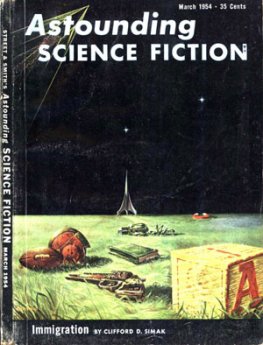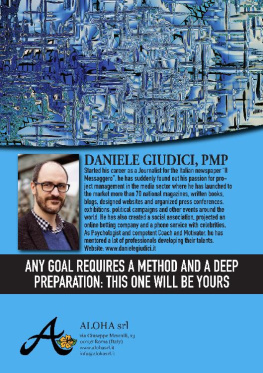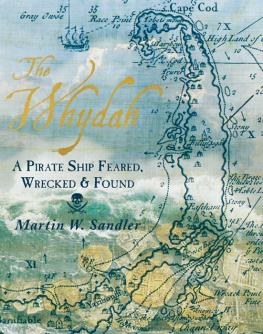Arthur Zirul - Final Exam
Here you can read online Arthur Zirul - Final Exam full text of the book (entire story) in english for free. Download pdf and epub, get meaning, cover and reviews about this ebook. year: 1954, publisher: Street & Smith Publications, Inc., genre: Science fiction. Description of the work, (preface) as well as reviews are available. Best literature library LitArk.com created for fans of good reading and offers a wide selection of genres:
Romance novel
Science fiction
Adventure
Detective
Science
History
Home and family
Prose
Art
Politics
Computer
Non-fiction
Religion
Business
Children
Humor
Choose a favorite category and find really read worthwhile books. Enjoy immersion in the world of imagination, feel the emotions of the characters or learn something new for yourself, make an fascinating discovery.
- Book:Final Exam
- Author:
- Publisher:Street & Smith Publications, Inc.
- Genre:
- Year:1954
- Rating:4 / 5
- Favourites:Add to favourites
- Your mark:
- 80
- 1
- 2
- 3
- 4
- 5
Final Exam: summary, description and annotation
We offer to read an annotation, description, summary or preface (depends on what the author of the book "Final Exam" wrote himself). If you haven't found the necessary information about the book — write in the comments, we will try to find it.
Final Exam — read online for free the complete book (whole text) full work
Below is the text of the book, divided by pages. System saving the place of the last page read, allows you to conveniently read the book "Final Exam" online for free, without having to search again every time where you left off. Put a bookmark, and you can go to the page where you finished reading at any time.
Font size:
Interval:
Bookmark:
Final Exam
by Arthur Zirul
The ship seemed to hang motionless above the great, green planet. The harsh, unfiltered light of the planets mother star glinted on the silvery hull, highlighting the ragged edge of a huge hole in the stern of the vessel.
The occupants of the spaceship stood anxiously by their posts. Even the youngest novice among them knew that the ship had seen its last flight; it was finished. The engines were gone, vanished in the crackling horror of an atomic fire. The holocaust had begun accidentally in the fuel center. In a few milliseconds the screaming flames had torn through the main bulkheads, following the fuel lines to the stern exhaust ports, destroying everything in their path. In a flash of hellish fire it was all over. Only the isolated control deck, where the few survivors now stood, remained intact.
It was only a matter of hours till the magnetic claws of the planet would pull the ship down, faster and faster, until the friction against the atmosphere would turn it into a molten, pitted massunrecognizable save as its component elements.
Each individual stood alone with his thoughts, separated from his neighbors by the cold inches of the space armor he wore. The atmosphere had long since hissed away through the gaping wounds in the ship. The vessel was tomb silent without it. Only the suit intercoms kept them in communications.
The chief engineer, stationed by his useless panel, studied the young second navigator for a moment. The youngster was tense, nervous; his features through the glass of his armor revealed the fear that chewed at his control.
Take it easy boy, the engineer beamed at him through the intercom. Were lucky, you know.
Lucky? the navigator shouted. You call this lucky? Dying on some lump parsecs from home! If thats luck, you can stick it in your stern tubes!
Lucky, the engineer repeated. This planet might not have been so convenient. We might have drifted in an orbit around that sun until our suit tanks gave out; and then
Oh shut up! The navigator turned quickly and walked to his table. He began checking his instruments in a vain attempt to be doing something. Suddenly he raised his head, and with his voice barely under control, cried:
Why doesnt the skipper say something? Whats he doing in that cabin?
Maybe hes saying his prayers, the engineer smirked.
The navigator threw his sextant viciously against the bulkhead.
Shut up, I said! he snapped.
Now hear this! Now hear this!
Each crewman straightened as the general call activated his individual receiver.
The captain will address the crew. Attention, please.
There was a pause, then the familiar voice of the skipper came through.
Men, there is no need for me to remind you of the gravity of our situation. We have no power, and as we are without communications our chances for immediate rescue are practically nonexistent. The situation, however, is not entirely hopeless.
The crew stirred in surprise and a murmur echoed through the intercom.
As you know, we were blown off our course by the blast recoil. We are in a strange sector being drawn into the planet below us. The planetologist informs me that this world has an atmosphere similar to that of our home planet. The gravity and vegetation, too, are very similar. In short, if need be, we can manage to survive there. Even more important than that, however, we have discovered signs of a highly developed culture. The alien sociologist tells me that this planet shows all the earmarks of a seventh-level culture. If that is true, then it means we might very well be able to obtain aid in returning home!
The babble in the phones grew to a hopeful crescendo for a moment before the captains voice resumed.
Do not become too optimistic however; we have a serious problem before us first. Since we have no power, our ships degravitators are useless; therefore if we are to manage a landing at all we must rely upon our suit degravitators. In short, we will abandon ship just as soon as we enter the atmosphere.
Since our course carries us on a shallow tangent with the planet, and our atmospheric speed will exceed several thousand units per hour, we will be widely scattered when we land. Also contributing to our wide dispersion will be the high surface winds of the planet. Even if we leave as quickly as possible to negate the other difficulties, the winds will fling us to all points of the compass; especially as we will be nearly weightless with our degravitators on. It is quite possible that we may be separated by as much as the diameter of the planet.
In order that we maintain as much fighting force as possible we will tie ourselves together in groups of three; more than that may prove cumbersome and dangerous. Some of the groups may be lost in the oceans. Some may die elsewhere in landing. I can only hope and pray that we all make it.
The chief navigator will issue maps to each group designating the rendezvous point on the planet for the entire crew. Proceed to that point as quickly as possible, by any means that you can manage. Good luck for now, and God be with you.

Illustrated by Arthur Sussman
There was a faint click as the captain signed off. His voice in the intercom was replaced by the excited babble of the crew.
All right men, knock it off! the chief navigator ordered through the phones. Heres the dope on this operation.
He walked among the crew handing out the freshly printed maps. The first officer spoke next.
There are fifteen of us left; you will separate into groups of three, according to alphabetical order. Each group will tie themselves together with their emergency lines. When you are ready, arrange yourselves in jump order by the forward escape hatch and the main lock. Three groups to the locks, two to the hatch. You will stand by for degrav and jump signals. Any questions?
Yes, sir, the junior navigator said. Do we have to turn our degravitators on right away? Cant we fall a while and then switch them on just before we land? That way well be surer of narrowing our landing area, and of staying together.
I see youve never used escape gear before, the first said a little impatiently. Those suit degravitators work in inverse proportion to the height of the fall. The further you fall, the slower you go. The unit needs distance to build up its field. These suit jobs are uncontrollable. They have only one setting and thats on. Youll need all the height you can get if you hope to build up any weightlessness with these One-lungers. If youre not careful, youll wind up spread out like a quart of jam in a 10-G pull out. Any other questions?
N-No, sir, the young officer stammered.
All right then, hop to, you birds, the first ordered. Be ready to shove off at count-off signal from the captain. The captain, the chief navigator, and myself will leave last through the escape hatch. Remember, rendezvous as quickly as possible. We will maintain the rendezvous point for ten time-cycles; about forty light-periods on this planet. If you cant get back by then, youre on your own. Stand by for count off!
The groups were quickly formed and tied together. They waited t ensely by the hatches for the signal that would send them out and down to the unknown world below. The captains voice clicked on again.
Ready now men, we will enter atmosphere in ten centiunits. Stand by for count-off from five centiunits after entrance.
They waited in their little groups, arms about each other resembling small football huddles, the better to keep them in one tight mass when they left ship. The first faint whistle of the upper atmosphere through the hole in the stern alerted them for the count off.
Font size:
Interval:
Bookmark:
Similar books «Final Exam»
Look at similar books to Final Exam. We have selected literature similar in name and meaning in the hope of providing readers with more options to find new, interesting, not yet read works.
Discussion, reviews of the book Final Exam and just readers' own opinions. Leave your comments, write what you think about the work, its meaning or the main characters. Specify what exactly you liked and what you didn't like, and why you think so.









